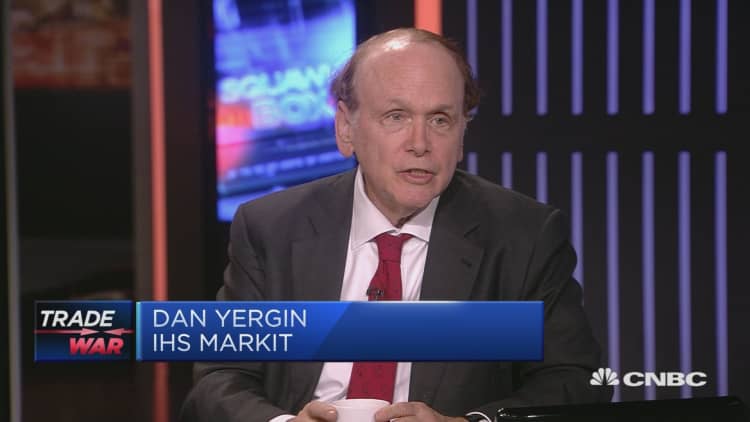Trade negotiations between the world's two largest economies are stalled over disagreements surrounding Chinese tech giant Huawei, The Wall Street Journal reported Wednesday.
Progress on resolving the trade war is stuck in limbo until the White House determines how to address China's demand to back off restrictions on Huawei, the Journal said, citing people familiar with the talks.

There has been little public progress since President Trump and President Xi Jinping agreed to a truce at the G-20 last month. The issue of intellectual property was a key sticking point at the June international summit, despite Washington and Beijing's agreement to restart talks. The issue over which semiconductor chips, among other products, can be sold to Huawei without security issues remains a key point of contention, according to the Journal.
On Tuesday, President Trump said "we have a long way to go as far as tariffs" and threatened to slap tariffs on another $325 billion of Chinese goods. The tariff escalation started in 2018, and the president has already put 25% levies on $250 billion of imported Chinese goods. That led to retaliation against U.S. agriculture and other imports.
The Commerce Department added Huawei, which relies on American suppliers for components and software in several of its products including smartphones, to a blacklist in May. That essentially bans American companies from doing business with the Chinese tech giant, unless they get special permission from the department. The White House declared a national emergency over the issue, citing national security threats.
The restrictions have already taken a toll on the Shenzhen-based giant. Huawei CEO and founder Ren Zhengfei said the company expects a $30 billion hit in the coming years thanks to the restrictions. The company also recently announced that it was scrapping a new laptop.

Earlier this week, the Journal reported that Huawei plans to lay off hundreds of employees as it remains on the blacklist. The layoffs are expected to hit Huawei's U.S. development subsidiary Futurewei, according to the Journal.
The trade battle also appears to be a drag on the Chinese economy. Data on Monday showed the country's economic growth slowed to 6.2% in the second quarter — the weakest rate in at least 27 years.
— Read the entire Wall Street Journal story here.


